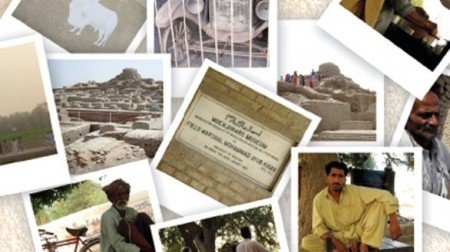
In Islam there is no God but God. In Larkana, there is no Woman but Mohtarma. Shaheed Mohtarma Benazir Bhutto.
Her face is everywhere. It is emblazoned on billboards. It looks out at you from street walls. You see it in every barbershop and tikka joint and tobacco stall. Mohtarma is everywhere. Other women are nowhere. I spot three women in three days in Larkana.
I saw an old woman politely asking for alms in a vegetable market. There was also a dominant headmistress type who marched along at the medical college. That was it until on my last night in town I glimpsed a woman of 30 sitting alone in the backseat of an Alto driving by. I could have sworn she was unveiled. And wore a yearning expression. And was beautiful. But I might have been seeing mirages by then. After all, this was interior Sindh, which everyone knows is desert country.
Except that it is not.
‘Sindh’. From the Sanskrit ‘Sindhu’. The word for ‘Ocean’.
The Indus is in trouble. Politics and abuse and climate change are bleeding it dry. But through the ages the desert has been no match for the great river. It is the reason we are all here. Life is green and Sindh is green so Sindh must have life.
But there is no life where there are no women.
Of course, there are women. But they are behind closed doors. I wonder if this matters when there are so many urgent questions. ‘What of water shortages? What of the price of tomatoes? Tell me about corruption. Talk to me of war. Who is the MNA, young man, and what does he have to say?’
I will talk of women before all that. Nothing defines Larkana more to the bone. The public banishment of half the race is not the news, but it is the story.
There are some sightings of the female of the species on the way into the city. My ride makes its way through villages and along tree-lined dust tracks. These women sit in the backs of auto-rickshaws which traverse the rocky lanes like jeeps over sand dunes. The women are clutching a child or two. Some of them are pinning bags or babies to keep them from tumbling out. All of them wear a burqa with latticework covering the face.
This is the Sindh of vibrant patchwork colourings but in this arid near-urban patch of earth the burqas came in just two colours - the ubiquitous black we all know and a light grey. The burqas in this colour are soon specked with sandy earth, steadily rising from the road below. This gives them the appearance of camouflage.
I have dinner with two locals. One I’ll call Mr Cheeks and the other The Graduate. I ask them why there are no women on the streets in Larkana.Mr Cheeks says, “There is purdah here. Most of the towns and cities in Sindh are like this.”
I said, “Not Karachi.”
“Karachi is another thing.”
The Graduate says, “Why do you want to see women?” I am relieved that he says it with a smile. “Because I like women.” He is unnerved that I say it with a smile. I am not being facetious and I certainly don’t want to appear that way, so I say, “I think it makes more of a difference to a society if there is a shortage of women playing a full part than if there is a shortage of electricity or water or sugar.”
Mr Cheeks says, “This is how it is here. Go to the villages. You will see women there mixing around.” “Why is that?” The Graduate says, “Because they are working. Tending to the crops in the fields and organising village life. Wearing such things would get in the way.”
Mr Cheeks laughs and says, “Yes. The women do all the work!” Can’t let a burqa get in the way of business.
In this excerpt from an 11-part series, our correspondent talks about how he loves women but in Larkana’s outskirts the sight of Benazir’s face is the only evidence
of the ‘fairer sex’





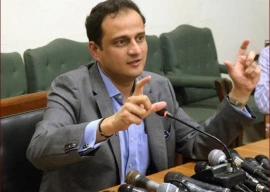
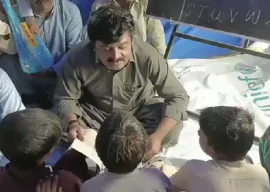
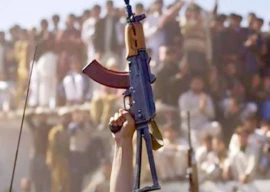

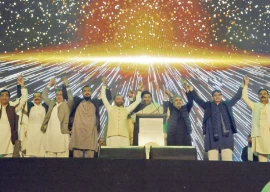


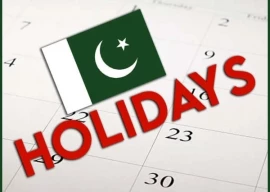
1734946202-0/Express-Tribune-(6)1734946202-0-270x192.webp)
1732012115-0/Untitled-design-(14)1732012115-0-270x192.webp)
1734899716-0/image-(15)1734899716-0-270x192.webp)







COMMENTS (2)
Comments are moderated and generally will be posted if they are on-topic and not abusive.
For more information, please see our Comments FAQ